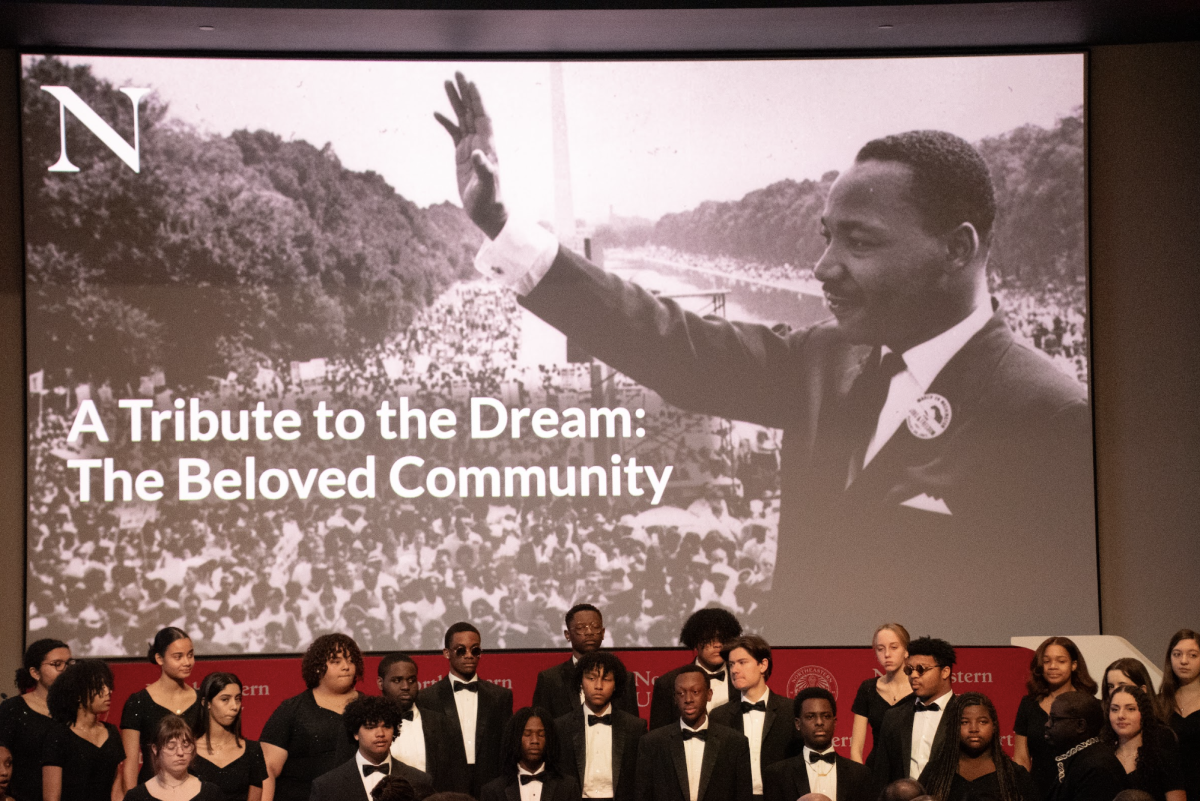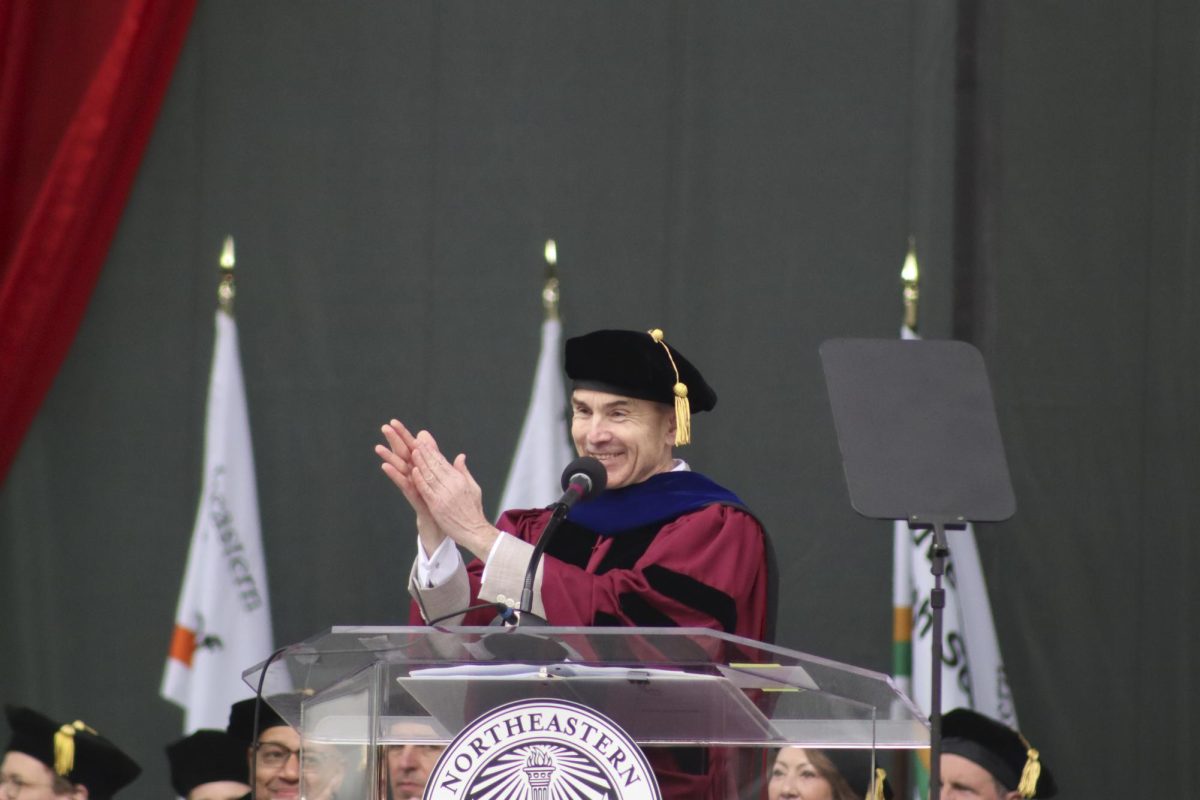I recently attended the American Repertory Theater’s production of ‘Sleep No More,’ and as one can read in the review in the Nov. 12 issue of The News, certain parts of the masked pseudo-participatory drama reminded me of director Stanley Kubrick’s dark and evocative 1999 film ‘Eyes Wide Shut.’
It gave me an opportunity to rethink the film, which is Kubrick’s last, and what feels like his parting joke on the film industry by creating something no studio would have touched for most of the legendary filmmaker’s career, which stretched about five decades from the early ’50s until his death in 1999. The film was still controversial upon its release soon after his death that year, but I feel it’s a piece of art that transcends profanity.
‘Eyes Wide Shut’ is a deeply psychological study of love, lust, marriage, jealousy, obsession and sexuality (OK, mostly the last one). It’s also a thriller about a man out of his element, who has far surpassed his boundaries. It roams as far as the occult and as close as the jealous fantasies of the mind. It touches upon both the mundane and tumultuous tensions that can affect relationships. It maintains a strikingly unique sensibility while still employing some of Hollywood’s biggest stars (Tom Cruise and Nicole Kidman, whose performances here are surprisingly artful).
It’s not Kubrick’s best film, but it might be his most extreme. Overall, it shows that at the end of his career, with five decades behind him, Stanley Kubrick had the necessary influence and virtuosity to create pretty much whatever he wanted.
Cruise and Kidman play a wealthy New York couple with a young daughter. Bill Harford (Cruise) is a doctor serving the ultra-rich. His wife Alice (Kidman) used to work in an art gallery. Their relationship is in trouble:’ They take each other for granted, and each subconsciously resents the other for it. It’s not long before these tensions are brought to the surface. The pair spends much of the time near the beginning of the film at a party, flirting with other guests. The next night, Alice perniciously confesses between marijuana-induced laughing fits that she once wanted to cheat on Bill with a naval officer who had merely glanced at her in a hotel lobby.
Cue jealous visions of said officer having his way with Alice, and Bill is off on a bizarre journey of sexual temptation. He’s called late at night to the bedside of a recently deceased patient, whose daughter professes her love to him. He allows himself to be solicited by a prostitute on the street, only to politely take his leave after receiving a short call from his wife. As Kubrick continues to riff on sexual tension, and there’s a lot of it in this film, things start to get increasingly strange.
Bill’s friend, a pianist, lets it slip that he’s been hired to play a string of recent gigs, blindfolded, at a sort of clandestine masquerade sex party held at a different location each week. Intrigued, Bill rents a mask and cloak from a costume store (where the owner’s daughter is caught fooling around with a couple of costumed older men while Bill selects an ensemble) and grabs a taxi out to a secluded mansion, where a hauntingly-masked Illuminati-type cult is holding a surreal mass orgy.
Here it becomes clear that Bill’s journey of sexual frustration has gotten out of hand, with dangerous or even deadly results, depending on how one interprets the film’s ambiguous twists and turns. What isn’t obscure is the tone and tension that Kubrick establishes. Wordless threats and subtle danger build suspense slowly. The cinematography takes on a voyeuristic and stalker-like quality, while the music masterfully adds a layer of unrest. A minimalist discordant piece by Gy’ouml;rgy Ligeti in particular, which makes use of only three haunting tones, stays in the head for days. In both visual and aural terms, Kubrick has let negative space define his environments, creating a psychological effect that intersects with the plot on multiple levels.
Kubrick, famous for working in a wide variety of genres, has successfully melded a few here. ‘Eyes Wide Shut’ is not just a horror film or thriller, but also a film about family and marriage. Suspense is created not just by what might happen to Bill, but what might happen between him and his wife. The situations are thus bizarre yet strikingly believable. Kubrick has created a unique and fantastic environment in which to explore the nature of modern relationships.
It’s a thrilling achievement, a fitting final entry in the career of a man who once said of the concept of family in a 1968 interview (with Playboy Magazine, no less) that ‘man has been cut adrift in a rudderless boat on an uncharted sea; if he is going to stay sane throughout the voyage, he must have someone to care about, something that is more important than him.’
Bill and Alice’s survival as a family throughout a turn-of-the-century onslaught of sex, jealousy and cult orgies shows that perhaps, three decades later and near the end of his life, Kubrick had some faith in love after all.
‘- Taylor Adams can be reached at [email protected].








